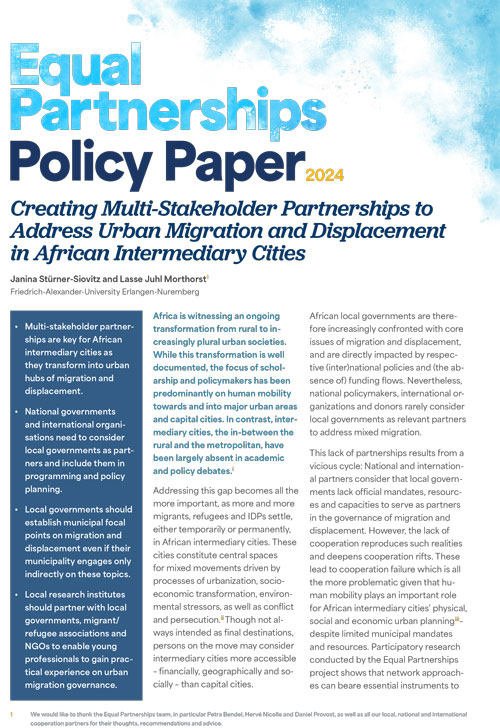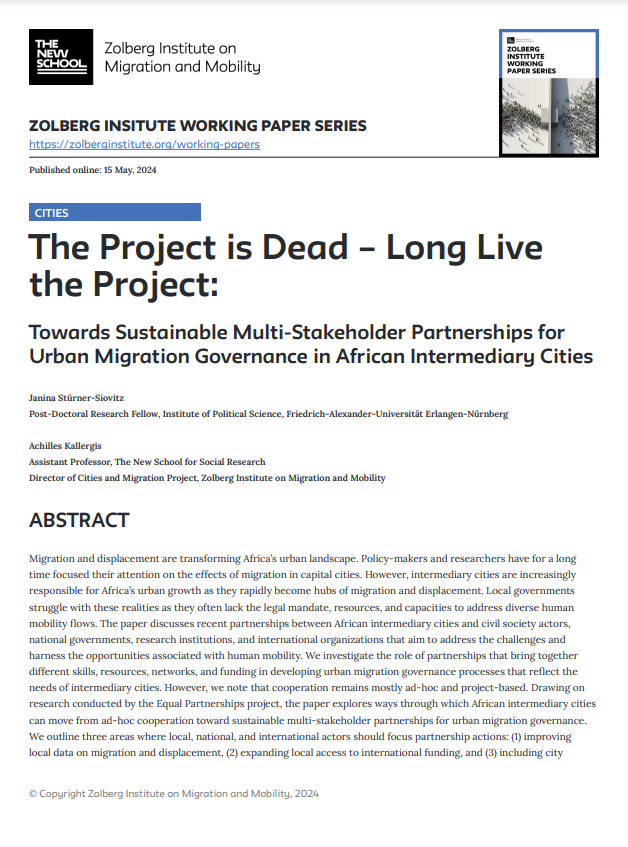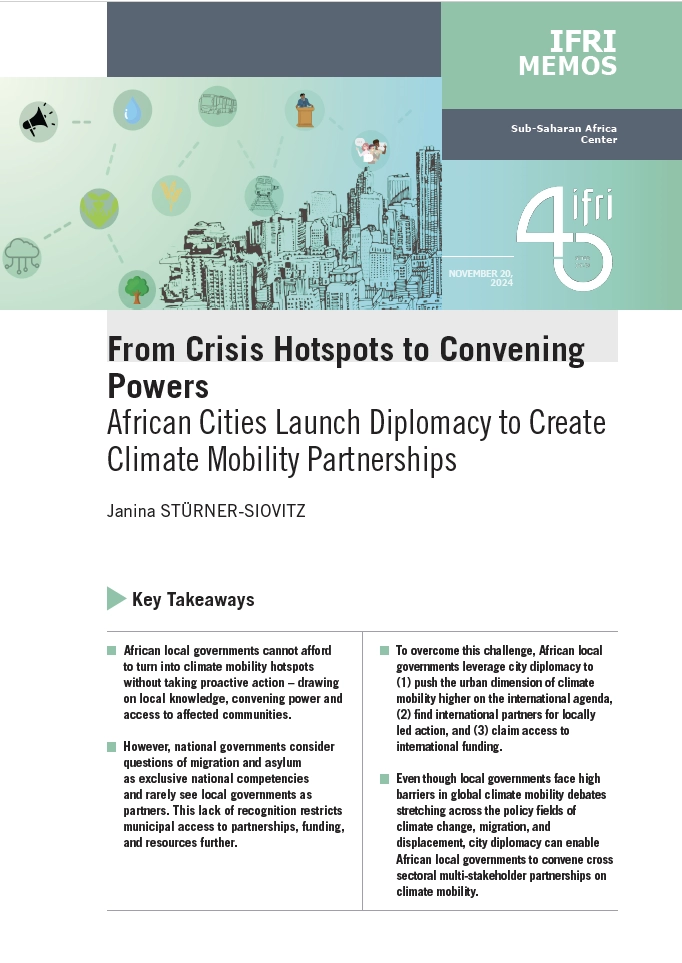Policy papers

Equal Partnerships policy paper. Creating sustainable multi-stakeholder partnerships for urban migration governance in African intermediary cities
Janina Stürner-Siovitz and Lasse Juhl Morthorst
2024
African local governments are increasingly experiencing core issues of migration and displacement and their cities are directly impacted by (inter)national policies and (the absence of) funding flows. Nevertheless, national policymakers, international organizations and donors rarely consider local governments as relevant partners to address mixed migration. These cooperation gaps are problematic since human mobility plays an important role for African intermediary cities’ physical, social, and economic urban planning. Networked approaches could help bridging such cooperation gaps and breaking up policy silos. To explore opportunities and challenges of multi-stakeholder partnerships for urban migration governance the Equal Partnerships project organized participatory research, workshops, and networking formats with six cities in East, West and North Africa. This policy paper presents central recommendations for collaborative urban migration governance addressed to local and national governments, civil society, migrant and refugee associations, international organizations, private sector actors, and donors.

The Project is Dead – Long Live the Project
Janina Stürner-Siovitz and Achilles Kallergis
2024
Based on a cooperation between the Zolberg Institute on Migration and Mobility and the Equal Partnerships Project, this paper discusses recent partnerships between African intermediary cities and civil society actors, national governments, research institutions, and international organizations. All of these partnerships aim to address the challenges and harness the opportunities associated with human mobility. It investigates the role of partnerships that bring together different skills, resources, networks, and funding in developing urban migration governance processes that reflect the needs of intermediary cities. However, cooperation remains mostly ad-hoc and project-based. Drawing on research conducted by the Equal Partnerships project, the paper explores ways through which African intermediary cities can move from ad-hoc cooperation toward sustainable multi-stakeholder partnerships for urban migration governance. The authors zoom in on three areas where local, national, and international actors should focus partnership actions: (1) improving local data on migration and displacement, (2) expanding local access to international funding, and (3) including city perspectives in intergovernmental policy dialogues.

Climate mobility in African intermediary cities: Strengthening local government responses through multi-stakeholder partnerships
Janina Stürner-Siovitz, Evan Easton-Calabria and Lionel Nzamba Nzamba
2025
Locally centered, multi-stakeholder partnerships bringing together local, national and international actors can strengthen policy responses to climate change and improve urban action regarding climate mobility. The policy brief outlines priority areas for such partnerships in African cities and presents concrete recommendations for collaborative action to address climate mobility. This policy brief forms part of the Climate Mobility Africa Insights series, a publication of the Climate Mobility Africa Research Network (CMARN), providing up-to-date analysis of key law and policy issues relating to climate mobility in Africa.

From Crisis Hotspots to Convening Powers. African Cities Launch Diplomacy to Create Climate Mobility Partnerships
Janina Stürner-Siovitz
2025
African local governments cannot afford to turn into climate mobility hotspots without taking proactive action – drawing on local knowledge, convening power and access to affected communities. However, national governments consider questions of migration and asylum as exclusive national competencies and rarely see local governments as partners. This lack of recognition restricts municipal access to partnerships, funding, and resources further. To overcome this challenge, African local governments leverage city diplomacy to (1) push the urban dimension of climate mobility higher on the international agenda, (2) find international partners for locally led action, and (3) claim access to international funding. Even though local governments face high barriers in global climate mobility debates stretching across the policy fields of climate change, migration, and displacement, city diplomacy can enable African local governments to convene cross sectoral multi-stakeholder partnerships. This policy paper was published by the Institut français des relations internationales (Ifri) as part of Ifri’s pioneer work on African city diplomacy.